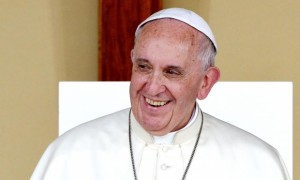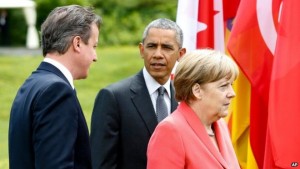I’ve been reading the Papal encyclical ‘Laudato Si’ On Care for Our Common Home’. It is referred to as a Papal letter, but at 180 pages or 40,000 words it is more of a book than a letter. It is a very interesting read and pretty radical in many ways. Pope Francis seeks to reach out beyond the global catholic community and speak to all of humanity. Many non Catholics, like me, are reading and commenting favourably. He is showing leadership in the face of the huge and interconnected macro –ecological challenges facing humanity and linking it very powerfully to the need for immensely greater global social justice. Sadly this kind of leadership has been entirely lacking from the global political mainstream. It has also been lacking from the mainstream of the other global religions, even if within each of them there are individuals and groups showing real concern.
As someone who has variously described himself as an atheist, humanist, pantheist and pagan, or a woolly mix of all of them, it is certainly unusual for me to be singing the praises of a Pope. Since becoming Pope he has been a powerful voice speaking up for the poor. Now he is speaking up for the planet, or rather humanity’s need to reform its relationship to the Earth and the health of its complex ecosystems, upon which humanity’s wellbeing depends. The media have branded this as the Papal encyclical on Climate Change, and it is about Climate Change but also so much more.
In some ways this encyclical reminds me of the teachings of Mahatma Gandhi. Professor Ian Gough of the London School of Economics, although not mentioning Gandhi, shows how this ‘revolutionary encyclical challenges both current ethics and economics’ by differentiating between “need” and “greed”. Gough explains: ‘These represent two worldviews. One seeks to satisfy our wants and preferences, which are limitless, non-satiable, substitutable and amoral. The other prioritises meeting universal human needs, which are limited, sufficient, non-substitutable and with clear ethical grounding.’
The encyclical also has much to say about love for the natural world being essential to human wellbeing and mental health. Seeing in nature only resources to be exploited we undermine our own individual and collective wellbeing. This again has huge implications for economic, political and ethical debate.
The Encyclical http://w2.vatican.va/content/francesco/en/encyclicals/documents/papa-francesco_20150524_enciclica-laudato-si.html
Guardian on encyclical http://www.theguardian.com/world/2015/jun/18/popes-climate-change-encyclical-calls-on-rich-nations-to-pay-social-debt
Guardian letters including that of Prof Ian Gough http://www.theguardian.com/environment/2015/jun/21/exegesis-of-pope-francis-encyclical-call-for-action-on-climate-change
Jonathon Porritt on the encyclical and the challenge to the Church of England http://www.jonathonporritt.com/blog/can-archbishop-welby-former-oil-man-rise-pope%E2%80%99s-challenge



